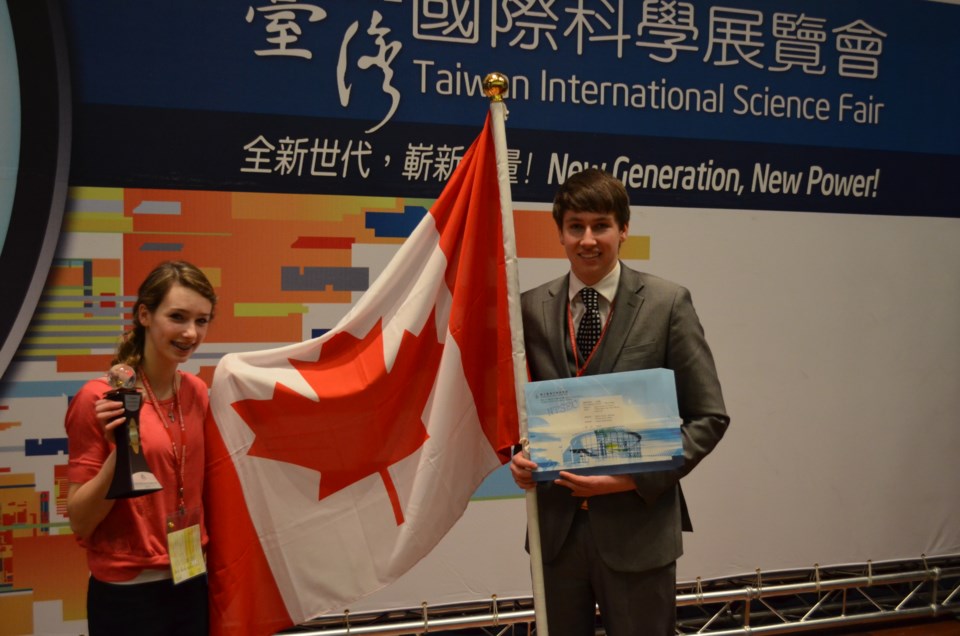Ashley Anderson and Forest Tower went to the Taiwan International Science Fair to showcase the merits of their invention to bring biofuel technology to Third World countries.
They might have been better off during their two-week trip to Taipei trying to find the ultimate methods for dealing with sleep deprivation.
"We made so many great friends there and you don't want to leave because they're from all over the world," said Anderson, 16. "It's a very slim chance we'll see them again [and] we wanted to have as much time with them as we could, so we stayed up very late. We drank lots of tea."
Anderson and Tower each lived with different host families in Taipei and the cultural experience went way beyond their expectations.
"They were the nicest people I've ever met, they were so accommodating, everything they did was based on me having a wonderful stay," said Anderson.
As the only Canadian entry in the Taiwan science fair, Anderson and Forest won bronze in the environmental category. The two Westside Academy students returned to Prince George on Tuesday carrying their third-place trophy.
"We didn't think we were going to place there, we were just having fun. Getting third place is just amazing," said Tower.
"The whole experience was amazing, just seeing the representatives from all different countries and hanging out with them. We had a lot of fun down there. I have friends in five or six countries that I didn't have before.
"After two weeks of just basically partying there, getting back to school wasn't much fun."
Tower came up with the idea to build a cheap and easily-constructed biogas energy collector while in Honduras two years ago as part of youth services school group. On that trip, Tower saw for himself the potential benefits of having a readily-available heat and light source as a bi-product of decomposing organic waste in a region where poverty and a lack of infrastructure is common. He and Anderson are cousins and longtime veterans of science fairs, having competed several times at the national level.
The one disadvantage they faced while presenting their project to the panel of two judges was the fact they only had about 10 to 15 minutes to explain it, about half the time they were given when they won the national science fair in Toronto, and neither judge spoke fluent English.
"We had to bring our project down a level using words they could understand," said Anderson. "They were very smart, but we couldn't use big words because they didn't understand the translation."
The science fair included entries from Azerbaijan, Canada, Hong Kong, Kuwait, New Zealand, Philippines, Russia, Saudi Arabia, Singapore, Slovakia, South Africa, Thailand and the United States.
Tower's work studying science at Westside Academy led to a four-year scholarship at UNBC, where he's already enrolled in the environmental engineering program for the fall semester. Anderson, a Grade 11 student, plans to study psychology once she gets to the post-secondary level.
Seeing how Taiwanese society works compared to that of Canada gave Anderson an entirely new perspective on life.
"They are a very respectful group of people and they respect their elders in incredible ways," said Anderson. "In everything they do, their elders are first. If anyone has a disability they're given respect and a special seat on the train or allowed to go first in line.
"It was incredible to see how their lives are so similar but yet so different from ours."


.png;w=120;h=80;mode=crop)
